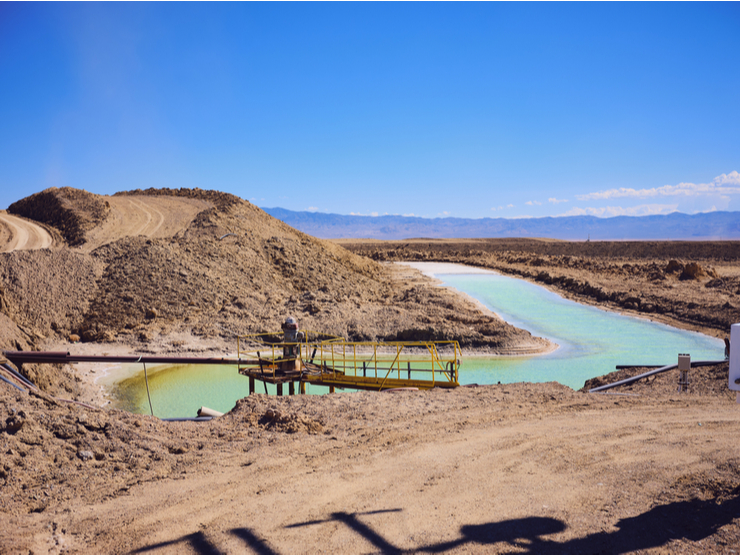
Brine pools at Silver Peak Lithium Mine in Silver Peak, Nevada. By Cavan-Images @ Shutterstock.com
Automakers are searching the globe looking to secure their own supplies of lithium to build the batteries in their electric cars. Clifford Krauss and
Eager to avoid falling further behind Tesla and Chinese car companies, many Western auto executives are bypassing traditional suppliers and committing billions of dollars on deals with lithium mining companies.
They are showing up in hard hats and steel-toed boots to scope out mines in places like Chile, Argentina, Quebec and Nevada to secure supplies of a metal that could make or break their companies as they move from gasoline to battery power.
Without lithium, U.S. and European carmakers won’t be able to build batteries for the electric pickup trucks, sport utility vehicles and sedans they need to remain competitive. And assembly lines they are ramping up in places like Michigan, Tennessee and Saxony, Germany, will grind to a halt.
Established mining companies don’t have enough lithium to supply the industry as electric vehicle sales soar. General Motors plans for all its car sales to be electric by 2035. In the first quarter of 2023, sales of battery-powered cars, pickups and sport utility vehicles in the United States rose 45 percent from a year earlier, according to Kelley Blue Book.
So car companies are scrambling to lock up exclusive access to smaller mines before others swoop in. But the strategy exposes them to the risky, boom-and-bust business of mining, sometimes in politically unstable countries with weak environmental protections. If they bet incorrectly, automakers could end up paying far more for lithium than it might sell for in a few years.
Auto executives said they had no choice because there weren’t sufficient reliable supplies of lithium and other battery materials, like nickel and cobalt, for the millions of electric vehicles the world needs.
In the past, automakers let battery suppliers buy lithium and other raw material on their own. But lithium shortages have forced carmakers, which have deeper pockets, to directly acquire the essential metal and have it sent to battery factories, some owned by suppliers and others owned partly or fully by the automakers. Batteries rely on lightweight lithium ions to conduct energy.
“We quickly realized there wasn’t an established value chain that would support our ambitions for the next 10 years,” said Sham Kunjur, who oversees General Motors’ program to secure battery materials.
The automaker last year struck a supply deal with Livent, a lithium company in Philadelphia, for material from South American mines. And in January, G.M. agreed to invest $650 million in Lithium Americas, a company based in Vancouver, British Columbia, to develop the Thacker Pass mine in Nevada. The company beat out 50 bidders, including battery and component makers, for that stake, said Mr. Kunjur and Lithium Americas executives.
Ford Motor has made lithium deals with SQM, a Chilean supplier; Albemarle, based in Charlotte, N.C.; and Nemaska Lithium of Quebec.
Read more here.
